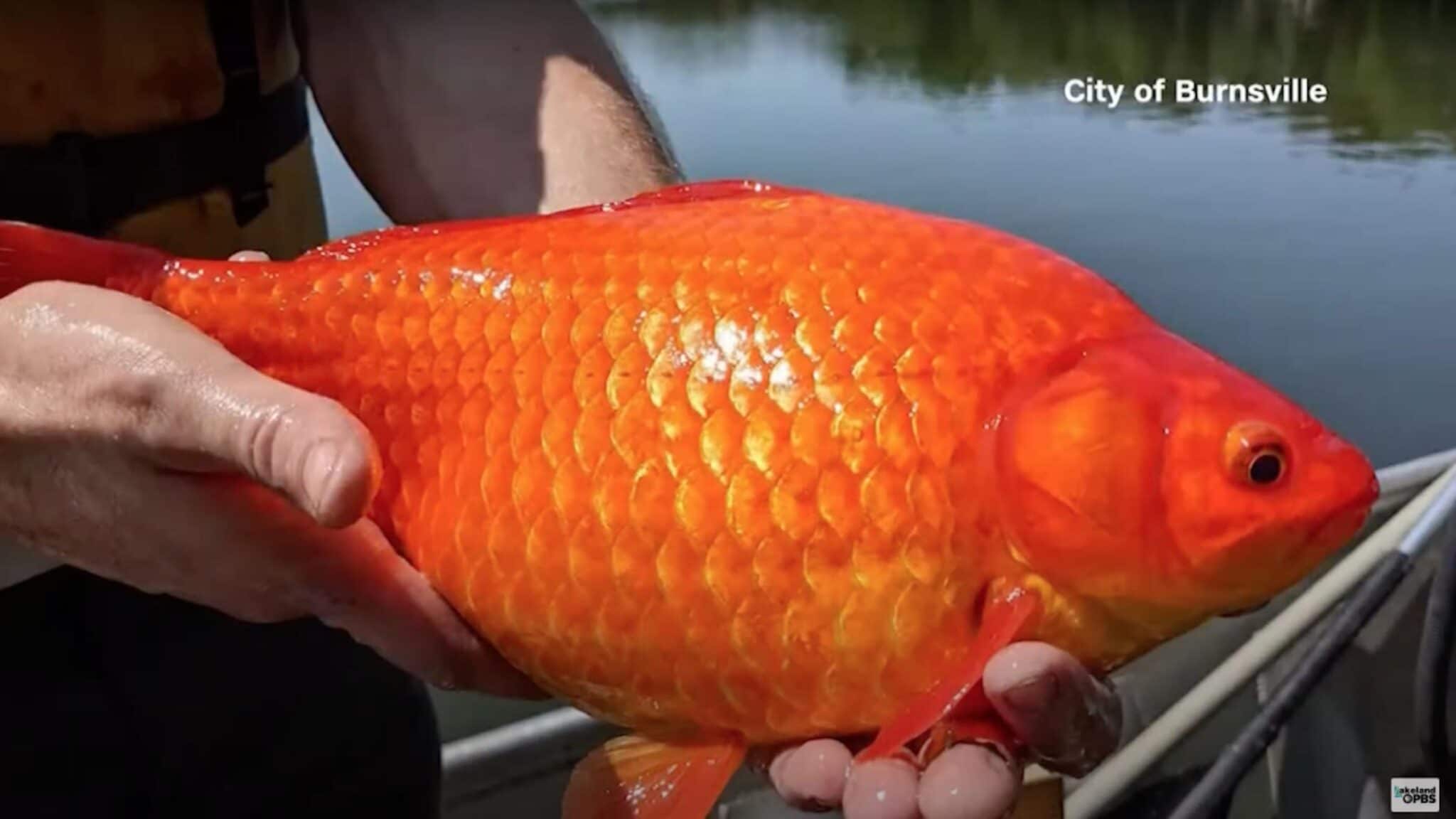
Pet Goldfish Dumped in Minnesota Lakes Are Growing Huge and Disrupting Ecosystems

Authorities in Minnesota have instructed residents and goldfish owners to stop dumping goldfish into the state’s waterways after abnormally large goldfish were found in a local lake.
The city of Burnsville tweeted photographs of the huge goldfish with the caption, “Please don’t release your pet goldfish into ponds and lakes!”
Groups of large goldfish, which can grow to be the size of a football, were found in local waters. The City of Burnsville said that when the fish grow bigger they “contribute to poor water quality by mucking up the bottom sediments and uprooting plants.”
The act of releasing unwanted fish is called “illegal fish stocking,” and it’s happening all over Minnesota, disrupting the balance of the natural ecosystems and fish communities, according to NPR.
The city is working with Carp Solutions, a start-up company that develops new technologies to control carp, according to ABC News.
This is not the first time the state has dealt with this issue. In November, officials removed around 50,000 goldfish from local waters. Paul Moline, Carver County’s water management manager, said goldfish are an “understudied species” with “a high potential to negatively impact the water quality of lakes,” according to The Guardian.
An adaptable fish of the carp family, goldfish can survive low levels of oxygen and easily reproduce, according to The Guardian.
“The most likely scenario is that somebody or a couple people released goldfish, and they’re exceedingly hardy fish,” Madeline Seveland, a spokesperson with the Carver County Water Management Organization said to MPR News.
Minnesota isn’t the only region dealing with this problem. Researchers in Boulder, Colorado found between 3,000 and 4,000 goldfish, and large ones were also found in Lake Tahoe, Nevada, as reported by National Geographic.
Goldfish haven’t garnered a ton of attention as an invasive fish, but the species is also causing issues in parts of Europe, Canada and Australia, according to MPR News.
“It just hasn’t reached a high level of awareness,” Peter Sorensen, a biologist at the University of Minnesota said to MPR News. “They don’t jump and knock people out of boats and break bones. But it’s a global issue.”
Dumping goldfish is illegal in many states, including Minnesota, NPR reported.
For pet owners who no longer wish to commit to their pet goldfish, the U.S. Fish and Wildlife Service recommends putting the pet up for adoption. Additionally, pet owners can contact a local veterinarian or pet retailer to learn how to humanely dispose of the goldfish while eliminating potential harm to native fish species, according to NPR.
Audrey Nakagawa is the content creator intern at EcoWatch. She is a senior at James Madison University studying Media, Art, and Design, with a concentration in journalism. She’s a reporter for The Breeze in the culture section and writes features on Harrisonburg artists, album reviews, and topics related to mental health and the environment. She was also a contributor for Virginia Reports where she reported on the impact that COVID-19 had on college students.

 233k
233k  41k
41k  Subscribe
Subscribe 